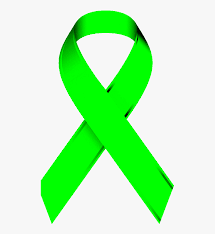Mental Health Awareness Month
Mental health refers to our emotional and social well-being and impacts how we think, feel, and behave. It plays a role in connecting with others, making decisions, handling stress, and many other aspects of daily life. Join us in spreading the word that mental health is something everyone should care about.
Why should I care about mental health?
Mental health is important for all of us. Taking care of yourself is critical to prevent your mental health from worsening – factors like nutrition and gut health, stress, sleep, relationships, trauma, and more can contribute to poor mental health. If your mental health is in a good spot, it is a great time to practice coping skills – ways to help you deal with hard feelings – so that you’re better able to handle tough times when they happen.
Is poor mental health the same as having a mental health condition?
You can have times of poor mental health without having a diagnosable condition – just like you can be generally physically unhealthy without having a particular illness. A mental health concern is anything that causes a person to believe their mental health may be suffering. You don’t need to be diagnosed with a mental health condition to be dealing with a mental health concern.
Many people struggle with not feeling “sick enough” to seek help early on in their mental health journey. The average delay between symptom onset and treatment is 11 years, meaning a lot of people spend months or years facing mental health challenges before getting a diagnosis. It is never too early to seek treatment – if you want help for your mental health, you deserve to get it.
What is a mental health condition?
A mental health condition, or mental illness, refers to a set of symptoms that have been identified by the mental health community. Mental health conditions are described in the Diagnostic and Statistical Manual of Mental Disorders (DSM-V), the International Classification of Diseases (ICD-11), or by people with lived experience.
People with mental health conditions deal with changes in emotions, thinking, and/or behavior. For some, this means extreme and unexpected changes in mood – like feeling much more sad or worried than usual. For others, it means not thinking clearly, pulling away from friends and activities you used to enjoy, or hearing voices that others do not. To be diagnosed, the changes in your thinking and emotions must be seriously hurting your ability to do the things you want to do; and sticking around longer than they should – weeks or months, depending on the condition. No matter what kind of mental health condition someone is facing, it’s always possible to recover. If you’re thinking about addressing your mental health for the first time, you may come across words that seem simple, but you aren’t exactly sure what they mean. We’ve compiled this list to help!
Coping skill: a strategy to help you deal with difficult situations and lessen unpleasant emotions, thoughts, or behaviors
Lived experience: first-hand, personal experience dealing with a mental health or substance use challenge
Mental health concern: anything that causes a person to believe their mental health may be suffering; could be a symptom, a group of symptoms, or a diagnosable mental health condition
Mental health condition: a set of related symptoms that have been recognized by the mental health community; includes conditions defined in the DSM-V, ICD-11, and by people with lived experience
Neurotransmitters: chemicals that carry messages throughout your brain
Peer: someone who shares the experience of living with a mental health condition and/or substance use disorder
Recovery: a process of change through which individuals improve their health and wellness, live self-directed lives, and strive to reach their full potential
Risk factor: something that increases the chances of developing a condition
Social determinants of health: the conditions in which people live, learn, work, and play that impact their health and quality of life
Stigma: negative, judgmental, and/or discriminatory attitudes toward mental health challenges and those who live with them
Stress: a feeling of emotional or physical tension in response to being overwhelmed or unable to cope with mental/emotional pressure
Symptom: a physical or mental feature that indicates the potential existence of a concern, condition, or diagnosis
Trauma: an emotional response to a disturbing, scary, or shocking experience that overwhelms an individual’s ability to cope
There is much you can learn about mental health. With an agency full of professionals who regularly work with clients, it is safe to say that learning happens every day. No matter your role, always be open to learning – especially about mental health!
